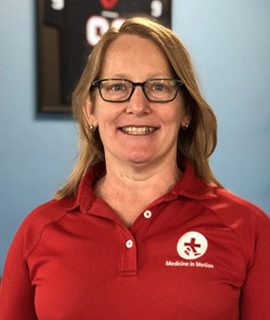TELEMEDICINE is so awesome!!! Sooo convenient! And SAFE. No worries about spreading or catching an infection. BUT, there are some reasons to come into the doctor’s office and today I wanted to focus on sports and yearly physicals. Let’s talk sports physicals first. Sports physicals, you know the forms you have to get signed by a doctor before you can play? Sometimes it’s easy to see those as just another task on the list of many things to get done for your kids….. and lose sight of the importance of these exams. In medical school, we learn a lot of acronyms and short lists to start learning. For sports physicals, it was the 3 H’s:
- Heart: screening for heart conditions that might result in sudden death.
- Hernia: screening for testicular cancer, hernia, and talking about STI’s. And
- Head: evaluating for risk of concussion and neck injury, obtaining baseline balance, baseline visual tracking, and baseline neurocognitive and neurological exam.
These baselines help determine what is normal for an individual and therefore provide the target for safe return-to-play decisions after there is a concussion.
In addition to the 3H’s, a good sports physical takes into account the athlete’s sport, and the typical injuries associated with that sport and evaluates the athlete for predisposing factors that might contribute to those injuries.
For example, a lack of shoulder blade strength and control could lead to a serious shoulder injury in baseball players. Lack of hip strength can lead to an ACL tear in a soccer player. Lack of neck strength could lead to neck or head injury in football players.
But, it is really hard to evaluate the risk of heart disease without using a stethoscope, checking blood pressure, and checking pulses in arms and legs. It is hard to screen for testicular cancer without well, looking at the testicles. And, it is really hard to do a complete neurological exam via telemedicine…. for example, that tap on the knee that makes your knee jerk.
Sudden death from a heart defect is a leading cause of death in athletes. Head injuries when not treated properly can lead to death or permanent brain damage.
By showing up at a doctor’s office for these 3 H’s, we can make sure your child is ready to play…. and doesn’t have a detectible risk of sudden death, testicular cancer, or high risk for neck or head injury. AND we will of course sign that form so you can check it off your list.
Now what about us adults?
We still have a heart, a head, and we have testicles/prostates or ovaries, lol. But the medical risks change as we become adults. Heart diseases in children are usually related to arrhythmias, congenital defects, or hereditary conditions. Heart disease for adults has these risks too but also heart attack, heart failure, and all the conditions that could contribute to these diseases. Such as:
- diabetes,
- high blood pressure,
- high cholesterol,
- arrhythmia,
- alcohol overuse,
- tobacco use.
The main reason to come into the doctor’s office as adults is for a heart check. Without listening to the heart, checking pulses and circulation, and doing an EKG when necessary, we are pretty limited in our ability to detect heart disease. Since heart disease is still a leading cause of death for adults, early detection of problems with the heart can save lives. And yes, we will still check for risk of head injury and testicular cancer but also ovarian, cervical, and breast cancer.
I love telemedicine! It is sometimes like charades, fun but challenging. But for those wellness checks for both sports and for adults, coming in to see the doc is really optimal. When your local environment feels safe to venture out into the Covid world, please consider going into the office for your wellness exams, otherwise, the exam will be limited in some of the most important ways.
Martha Pyron MD



